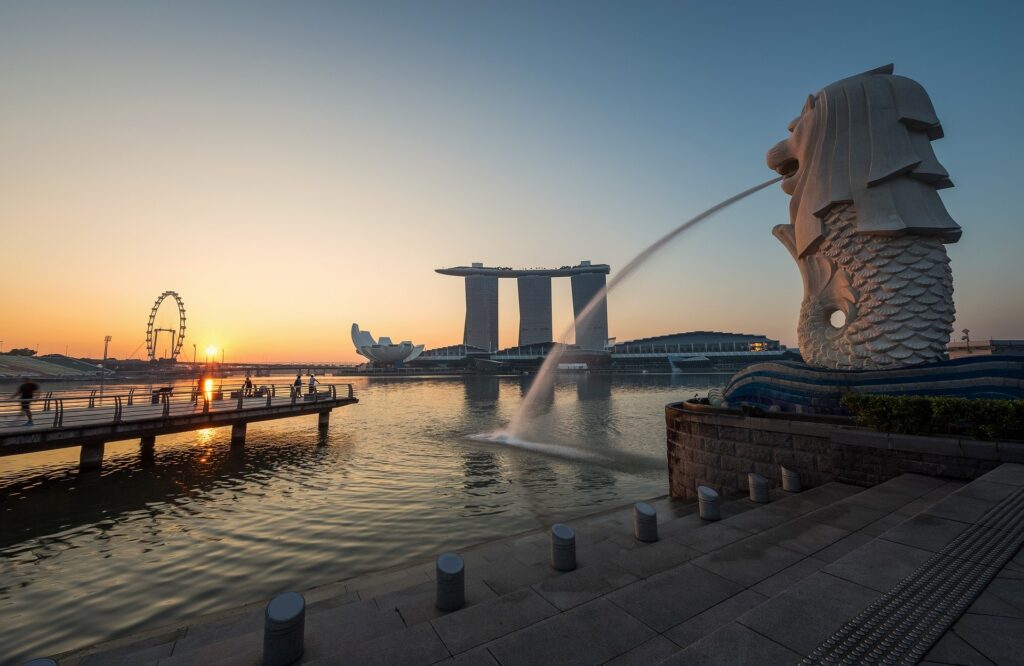Singapore’s status as a thriving business hub and a magnet for foreign professionals and entrepreneurs is attributed to its highly developed infrastructure, investor-friendly ecosystem, and diverse, innovative workforce. To tap into the vast pool of global talent, the city-state offers various visa options to cater to different professional needs. Among the most popular work passes are the EntrePass and the Employment Pass. While both programs facilitate foreign talent in contributing to Singapore’s flourishing economy, they cater to distinct professional profiles with varying requirements and guidelines.
The EntrePass, designed specifically for foreign entrepreneurs, enables investors and innovators to establish or relocate their businesses to Singapore, fostering business growth and innovation in various industries. On the other hand, the Employment Pass targets skilled professionals, managers, and executives considering a career in the city-state, securing rewarding positions in diverse sectors, and building a successful professional journey.
In this comprehensive guide, we aim to demystify the differences between EntrePass and Employment Pass by examining their eligibility criteria, application processes, and the advantages associated with each. This knowledge can empower foreign professionals to make informed decisions tailored to their career aspirations and goals.
Delving into EntrePass: Singapore's Visa Solution for Entrepreneurs and Innovators
The EntrePass holds tremendous appeal for foreign entrepreneurs and business visionaries, catering to those looking to establish, expand, or relocate their enterprises to Singapore. Crucial aspects of the EntrePass include:
- Eligibility criteria: To qualify for an EntrePass, applicants must hold at least 30% company shares and be actively involved in the daily operations of their enterprise. Additionally, a newly incorporated company must possess at least SGD 50,000 in paid-up capital. Applicants are also expected to meet other specific criteria based on their business models and industries.
- Business milestones: Every year, EntrePass holders must achieve predetermined business milestones, and their visa validity during each renewal is subject to these accomplishments.
- Visa validity: EntrePass initial validity is one year, with the option to renew for up to three years, subject to the fulfilment of business milestones.
Understanding the Employment Pass: Singapore's Premier Work Pass for Skilled Professionals
The Employment Pass targets global experts, executives, managers, and skilled professionals, offering an avenue for their talents to contribute to Singapore’s vibrant economy:
- Eligibility criteria: Employment Pass applicants must possess a minimum salary of SGD 4,500 per month, with more experienced applicants requiring higher salaries to qualify. A tertiary education degree, professional qualifications, or specialised skills are also necessary, in addition to a secured job offer within the city-state.
- Visa validity: Employment Passes are initially valid for a period of up to two years, with renewals possible for up to three years.
- No dependency: Unlike the EntrePass, which also accommodates the visa holder’s family members, the Employment Pass does not automatically include dependents.
Weighing the Differences: Key Considerations in Choosing Between EntrePass and Employment Pass
Making the decision between EntrePass and Employment Pass becomes easier when considering the following points:
- Professional background: EntrePass is best suited for entrepreneurs and investors with a business ownership stake, while the Employment Pass caters to skilled professionals and executives working in established organisations.
- Company incorporation and capital requirements: EntrePass applicants must demonstrate a minimum paid-up capital of SGD 50,000 and recent company incorporation (less than six months). On the contrary, Employment Pass applications hinge on a confirmed job offer without company incorporation or capital requirements.
- Renewal requirements: The EntrePass renewal is linked to the success of the business and the achievement of pre-determined milestones. In contrast, the Employment Pass renewal depends on the continued employment contract with the sponsoring company.
- Family considerations: EntrePass allows for the addition of family members, while the Employment Pass does not include dependents. However, employment pass holders with a certain minimum salary can apply for dependent passes for their families.
Navigating the Application Process for EntrePass and Employment Pass
Understanding each visa’s application process ensures a smoother transition into your chosen professional pathway in Singapore:
- EntrePass application process: Submit an EntrePass application with supporting documents, such as your business plan and company incorporation details, to Singapore’s Ministry of Manpower (MOM). Successful applicants will be granted an approval-in-principal letter. You must travel to Singapore within six months to collect your EntrePass and complete the registration process.
- Employment Pass application process: Prospective employers typically submit the Employment Pass application on your behalf, alongside the necessary documents to MOM. Upon approval, you will receive the approval-in-principal letter, allowing you to travel to Singapore to collect your Employment Pass and embark on your professional journey.
Charting Your Course with Singapore's EntrePass and Employment Pass Options
In the vibrant landscape of Singapore, opportunities abound for skilled professionals, managers, executives, and entrepreneurs. Understanding the nuances and benefits of EntrePass and Employment Pass is crucial in making an informed decision that aligns with your career objectives.
At Visa Express Pte Ltd., we strive to simplify the complexities of Singapore’s visa landscape, providing a seamless experience tailored to your professional aspirations in the city-state. Let our Singapore visa experts pave the way for you to a rewarding and fulfilling professional journey in Lion City!




